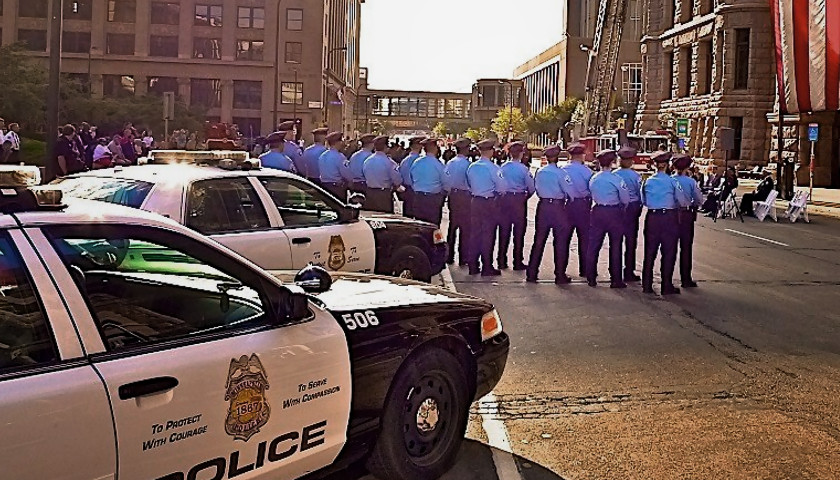Minnesota’s House and Senate approved the SSHF1 amendment last Monday, a big bill positioned to issue widespread police reform throughout the state. Since its passage 102-29 in the House and 60-7 in the Senate, the bill now rests in the hands of Governor Tim Walz.
SSHF1 is as long as it is weighty in its impact, with around 15 action items up for approval. Not only does it endeavor to further define legal use of force, but it creates and funds an administrative host of units, councils, and boards.
It establishes: peer counseling and critical incident stress management for officers; the Use of Force Investigations Unit to review officer-involved deaths, potential conflicts of interest, and instances of criminal sexual conduct; standards and measures for use of deadly force, with specialized regard for the physically, mentally, developmentally, and intellectually disabled; The Ensuring Police Excellence and Improving Community Relations Advisory Council to assist the Peace Officer Standards and Training Board and act as a liaison to the community for “maintaining policies and regulating peace officers in a manner that ensures the protection of civil and human rights”; residency incentives for officers; and a centralized, public database providing information on peace officers.
It prohibits choke holds, tying all the limbs behind the back, and securing a person in a way that transports them face-down in a vehicle. Also prohibited is “Warrior-Style” training, which is defined as training officers to be aggressive and dehumanize people.
It mandates chief law enforcement officers to provide monthly reports of force resulting in serious bodily injury or death, and then annual reports on alleged misconduct. All officers are mandated to intercede and report on misconduct. Additionally, all officers must now complete crisis response, conflict management, and cultural diversity training – the bill hosts specific training provisions for handling persons with autism and mental illness.
And, it grants the Peace Officer Standards and Training Board power to “adopt an updated comprehensive written model policy” by which all law enforcement agencies must adhere, as well as the power to inspect all law enforcement agencies to ensure their compliance with the bill.
Some representatives criticized the bill, such as Senator Jeff Hayden (DFL-MN-62) who read aloud some provisions and stated, “we don’t think that goes far enough”. Senator Patricia Torres Ray (DFL-MN-63) claimed that the bill was not the right bill for the job of police reform.
“We know that this bill is actually not the bill that communities of color want. We have been told that from the very beginning. The communities that are impacted by police brutality want more. They want transformation policy. And this bill is just not that.”
When asked in a subsequent interview where she thought the amendments fell short, Torres Ray explained the bill lacked in adequate funding, public input, and specificity of disciplinary follow-through.
“The pieces that were included, in my opinion, were not strong enough. For example, the need to provide training – mental health training – is a very important component of this bill. We put some language in it, but there is no funding behind it. That’s just a very good example of policy that is there, that could do some good things, but I’m not necessarily sure about how this is going to work.”
Representative Jim Nash (R-MN-47A) proposed an amendment providing for an investigatory body to look into the recent breakouts of civil unrest across the state. The proposal was voted down. House Majority Leader Ryan Winkler (DFL-MN-) noted that Nash’s amendment was something already included in the “Promise Act” passed by the House and blocked by the Senate in June.
Representative Carlos Mariana (DFL-MN-65B) sponsored the bill, which he says is a thinner version of the one passed June 19th by the House and rejected by the Senate. One delete-all amendment redrafts the provision for officer peer counseling entirely. Even so, Mariana stands by the bill.
“I can say in full confidence that this is a good bill. It creates a modern accountability framework of laws that will help to end the type of police brutality that killed George Floyd.”
These amendments did receive bipartisan support from Senator Warren Limmer (R-MN-34). Both Limmer and Mariana are chairs to respective public safety committees.
“The bill we’ve agreed on this special session is based on common-sense reforms that Minnesotans, police officers, and community leaders can support,” Limmer assured.
The bill will cost the General Fund $7.26 million for fiscal year 2021; $3.37 million of those funds will be divested for the Use of Force Investigations Unit.
If Governor Tim Walz approves SSHF1, the police reform package will take effect August 1, or according to final enactment.
– – –
Corinne Murdock is a reporter at The Minnesota Sun and the Star News Network. Follow her latest on Twitter, or email tips to [email protected].





